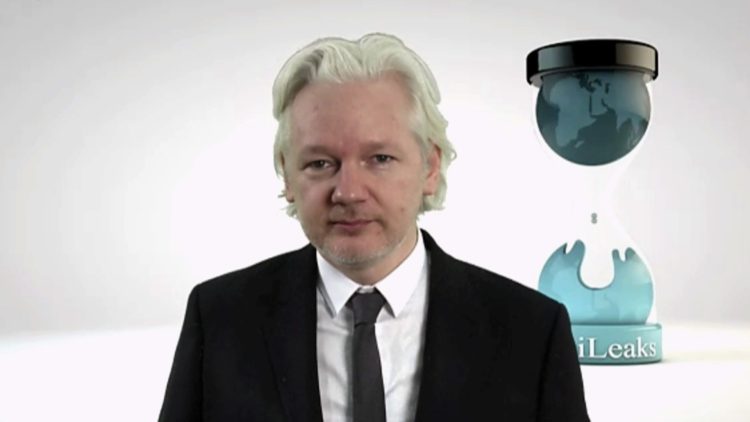By James Simons-
A Uk court has formally approved the extradition of Julian Assange to the US on espionage charges, in what will ultimately be a decision for the UK home secretary, Priti Patel.
The Wikileaks co-founder, who has the right of appeal, appeared by videolink during the Westminster magistrates court hearing, which one of his barristers described as a “brief but significant moment in the case”.
Assange watched the latest proceedings by video link from Belmarsh Prison, where he has been held since 2019 when he was arrested for skipping bail during a separate legal battle.
Up until then, he spent seven years inside the Ecuadorean Embassy in London to avoid extradition to Sweden to face allegations of rape and sexual assault. Sweden dropped the sex crimes investigations in November 2019 after the statute of limitations ran out.
US prosecutors allege Assange unlawfully helped US Army intelligence analyst Chelsea Manning steal classified diplomatic cables and military files that WikiLeaks later published, putting lives at risk. He faces 17 charges of espionage and one charge of computer misuse.
The brief hearing was taking place after the supreme court last month refused Assange’s appeal against his extradition. He had sought to challenge a judgment by the high court in December that ruled he could be extradited after assurances from the US authorities with regard to his prison conditions there.
An extradition order was issued by the chief magistrate, Paul Goldspring, during the seven-minute hearing.
Goldspring told Assange: “In layman’s terms, I am duty bound to send your case to the secretary of state for a decision.”
As well as being able to make submissions to Patel, Assange’s lawyers can also access other routes to fight his extradition. This could include mounting a challenge on other issues of law raised at first instance on which he lost and have not yet been subject to appeal.
Assange, wearing a jacket and tie, appeared via a video link from Belmarsh prison, where he was married last month to his partner, Stella Moris, and spoke only to confirm his name and date of birth.
Moris was in the public gallery at Westminster magistrates court, where a large crowd of supporters gathered outside, including the former Labour party leader, Jeremy Corbyn.
Corbyn said he hoped the home secretary would recognize her “huge responsibility” to stand up for free speech, journalism and democracy and release Assange.
“He has done no more than tell the world about military planning, military policies and the horrors of wars in Afghanistan and Iraq and I think he deserves to be thanked,” he told reporters.
Supporters and lawyers for Assange, 50, have argued that he was acting as a journalist and is entitled to First Amendment protections of freedom of speech for publishing documents that exposed US military wrongdoing in Iraq and Afghanistan. They argue that his case is politically motivated.




